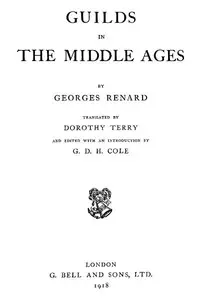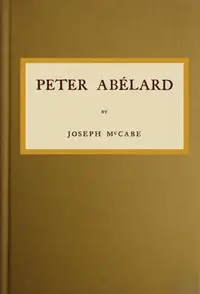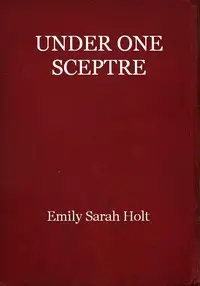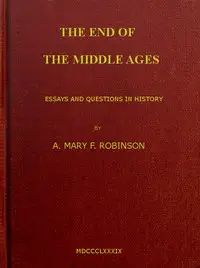"The Works of Christopher Marlowe, Vol. 2 (of 3)" by Christopher Marlowe is a compilation of dramatic plays from the late 1500s, highlighting the author's flair for crafting compelling narratives and intricate characters. Featured plays, like "The Jew of Malta" and "Edward the Second," explore difficult themes of ambition, disloyalty, and the tangled web of human desires. "The Jew of Malta" introduces us to Barabas, an affluent Jewish merchant, who we find at the start boasting about his riches. The narrative quickly shows his frustration as the Maltese governor takes his gold. Barabas is portrayed as a sharp, vindictive character resentful of Christians. The beginning paves the way for Barabas’s plot for revenge against those who hurt him, foreshadowing the dark turns of the story. Through characters like Barabas and others, the themes of avarice and revenge are emphasized in a plot full of conflict..

The Works of Christopher Marlowe, Vol. 2 (of 3)
By Christopher Marlowe
In a world of political intrigue, a wealthy merchant seeks vengeance against those who have wronged him, setting in motion a chain of events filled with betrayal and cunning schemes.
Summary
About the AuthorChristopher Marlowe, also known as Kit Marlowe, was an English playwright, poet, and translator of the Elizabethan era. Marlowe is among the most famous of the Elizabethan playwrights. Based upon the "many imitations" of his play Tamburlaine, modern scholars consider him to have been the foremost dramatist in London in the years just before his mysterious early death. Some scholars also believe that he greatly influenced William Shakespeare, who was baptised in the same year as Marlowe and later succeeded him as the preeminent Elizabethan playwright. Marlowe was the first to achieve critical reputation for his use of blank verse, which became the standard for the era. His plays are distinguished by their overreaching protagonists. Themes found within Marlowe's literary works have been noted as humanistic with realistic emotions, which some scholars find difficult to reconcile with Marlowe's "anti-intellectualism" and his catering to the prurient tastes of his Elizabethan audiences for generous displays of extreme physical violence, cruelty, and bloodshed.
Christopher Marlowe, also known as Kit Marlowe, was an English playwright, poet, and translator of the Elizabethan era. Marlowe is among the most famous of the Elizabethan playwrights. Based upon the "many imitations" of his play Tamburlaine, modern scholars consider him to have been the foremost dramatist in London in the years just before his mysterious early death. Some scholars also believe that he greatly influenced William Shakespeare, who was baptised in the same year as Marlowe and later succeeded him as the preeminent Elizabethan playwright. Marlowe was the first to achieve critical reputation for his use of blank verse, which became the standard for the era. His plays are distinguished by their overreaching protagonists. Themes found within Marlowe's literary works have been noted as humanistic with realistic emotions, which some scholars find difficult to reconcile with Marlowe's "anti-intellectualism" and his catering to the prurient tastes of his Elizabethan audiences for generous displays of extreme physical violence, cruelty, and bloodshed.


















